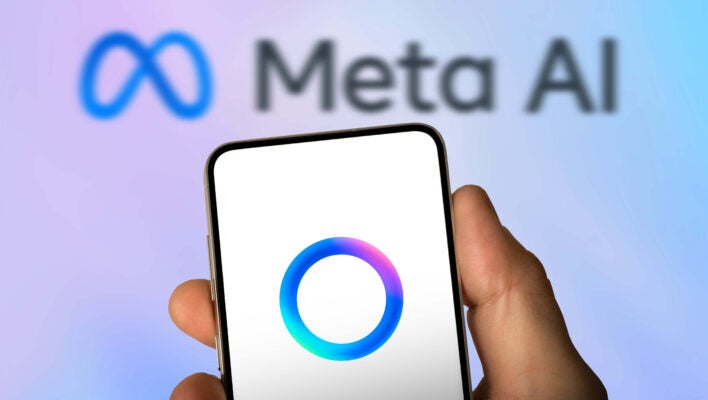Key takeaways
- Meta will start relying on data from user conversations with its AI chatbot to personalize its ads and other content.
- It starts in December 16, and users can’t opt out of it.
- Certain conversational topics will not be included in the data, including religion, politics, health, race, or sexual orientation.
Enjoy talking to Meta’s AI chatbot? Expect some very specific advertisements: The social media platform just announced that it will soon start using data from AI chats in order to create targeted ads on Instagram and Facebook.
In other words, if you mention to the generative AI chat tool on Facebook that you like pizza, you might start seeing more Domino’s ads on Instagram.
The changes will take effect on December 16. Users cannot opt out.
Some Sensitive Content Will Be Excluded
Most people don’t love hyper-targeted ads, with many complaining about the lack of privacy that it offers.
To them, Meta has an answer of sorts: It won’t be collecting data on every single topic that users decide to share with its chatbot. Here’s the list of conversational topics that Meta claims it won’t be incorporating into its new ad-targeting process:
 This just in! View
This just in! View
the top business tech deals for 2026 👨💻
- Religious views
- Political views
- Sexual orientation
- Health data
- Racial or ethnic origin
Granted, it’s unclear how Meta will be able to ensure that these topics won’t be impacted ads to any extent.
After all, it seems like any of the above issues might easily impact the types of questions or interests that someone might bring up with a chatbot, even if they’re not explicitly naming the topic itself.
Will Anyone Push Back on Hyper-Targeting?
Even given these exceptions, Meta’s further integration of user data into advertising efforts is worth highlighting. Reporting on the new use of data, the Wall Street Journal has called it “the crossing of a new frontier in digital privacy.”
Other commenters have offered responses ranging from refusals to accept the change (“Do not use Meta’s chat functions”) to flat irony (“Never thought the free products with ads company would use another free product to sell more ads, this is beyond shocking”).
The new ad push is likely part of Meta’s attempt to monetize its increased focus on AI. CEO Mark Zuckerberg recently said that Meta plans to spend $600 billion on AI infrastructure across the next several years.
How Will Meta Roll Out the New Policy?
The policy will apply to most countries at launch, but a few countries are excluded for now. These include the UK, South Korea, and the entire European Union.
That does makes sense: The EU in particular will likely give this new Meta policy plenty of scrutiny, given their history of contesting Meta’s advertisements.
By December 16, however, more than a few of the 3.35 billion daily active users that Meta boasts across all core platforms will start to see a change in their advertisements.




